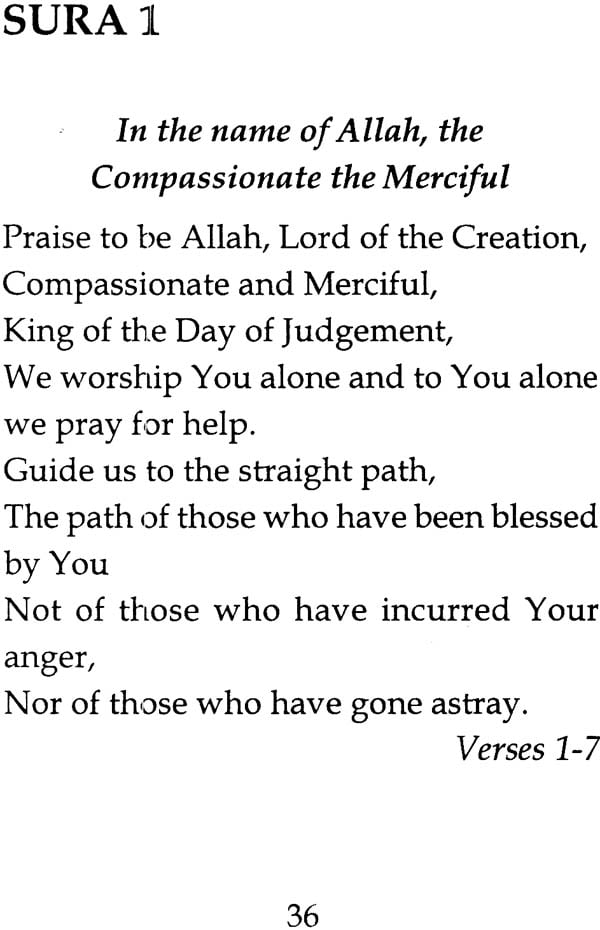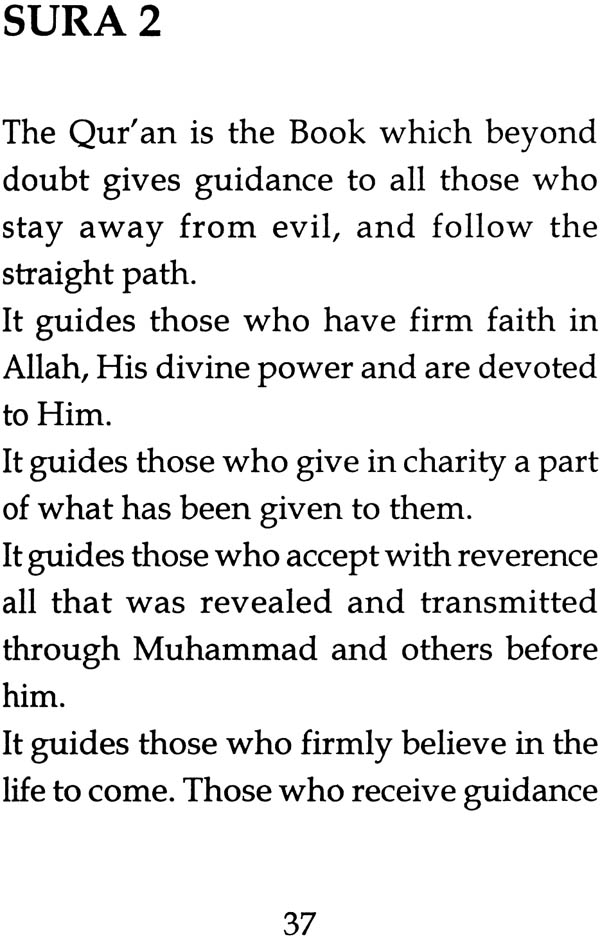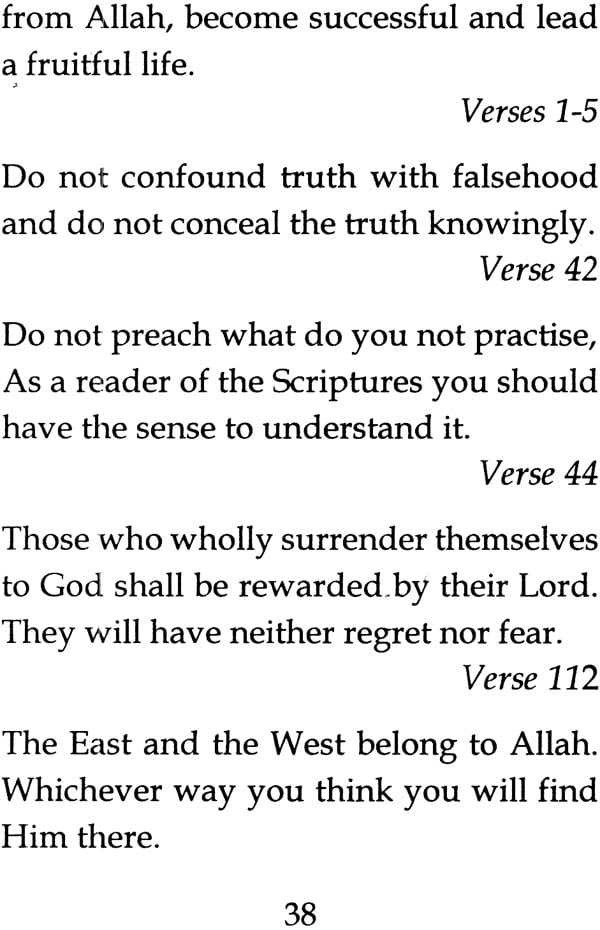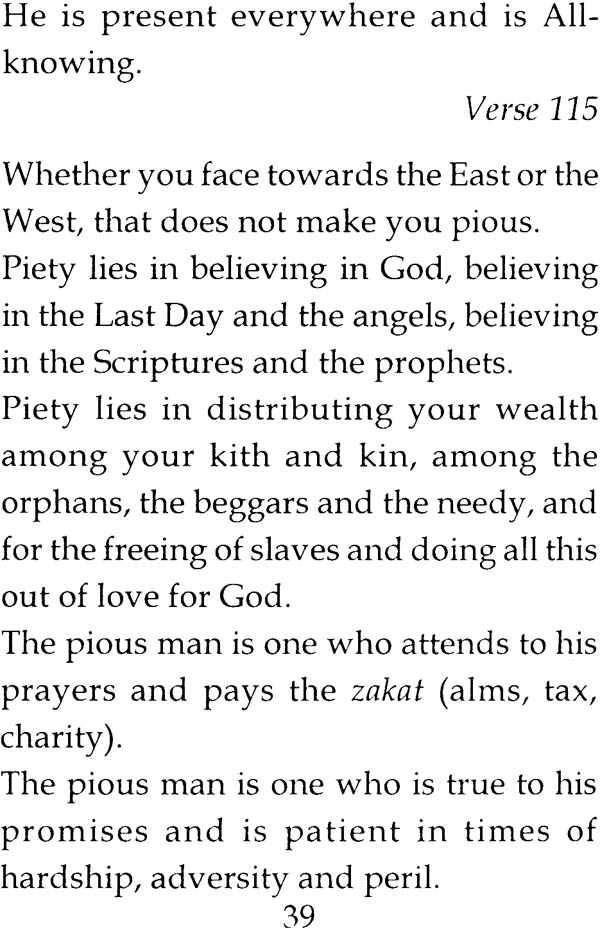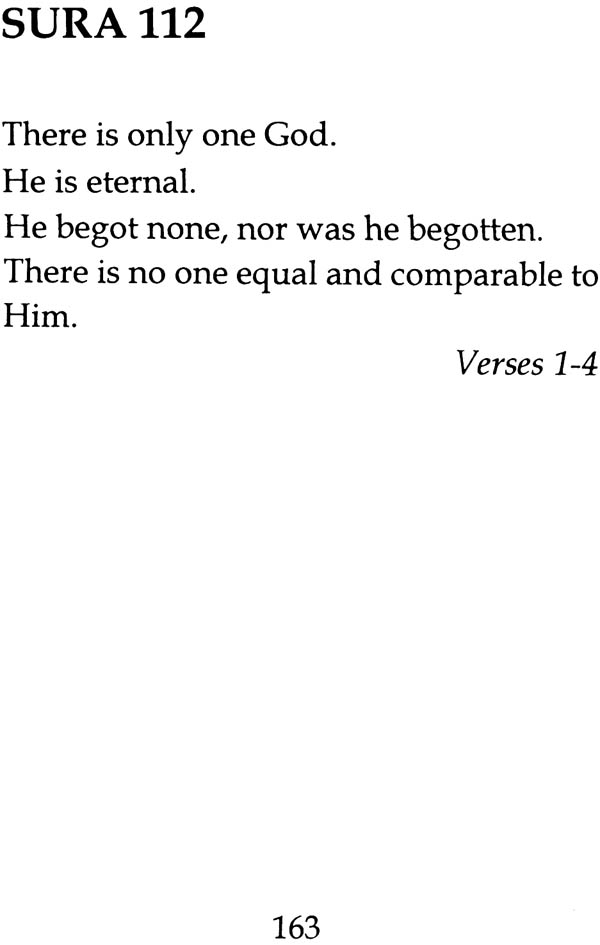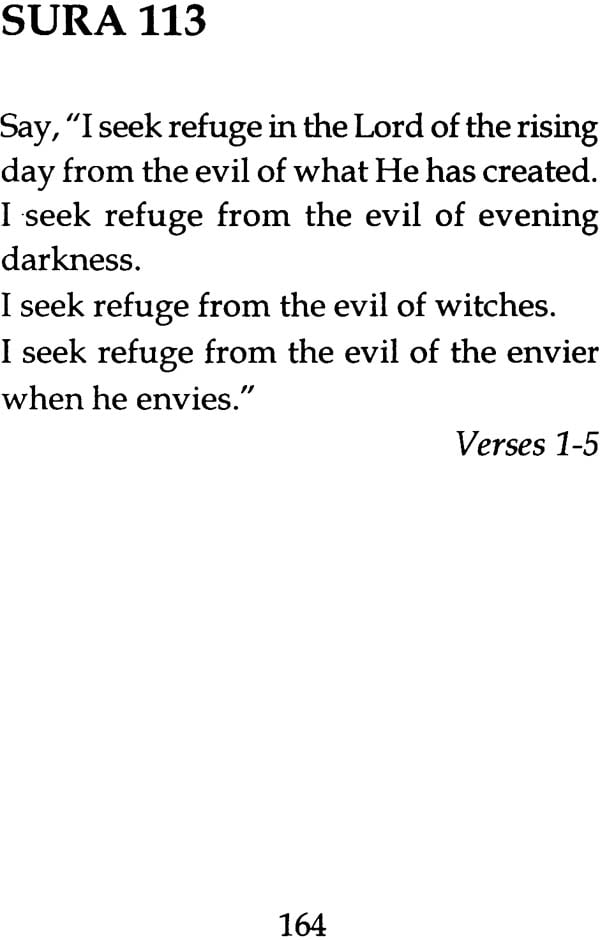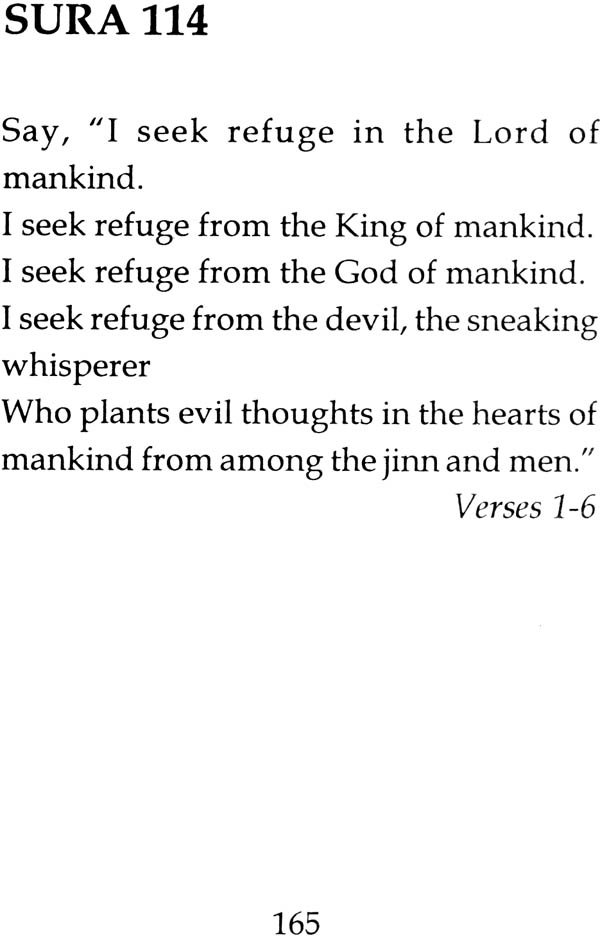
Selections from the Quran
Book Specification
| Item Code: | IDE683 |
| Author: | O.P.Ghai |
| Publisher: | New Dawn Press |
| Language: | English |
| Edition: | 2004 |
| ISBN: | 9788120725379 |
| Pages: | 176 |
| Cover: | Paperback |
| Other Details | 6.0" X 4.5" |
| Weight | 130 gm |
Book Description
From the Jacket:
S.A. Ali, former Director, Institute of Islamic studies, Hamdard University, New Delhi, says: "To the ever-growing number of English-speaking readers looking for a volume which will tell them the essential message of the Qur'an in one sitting, I cannot commend a book as readily as the present one.
"To Muslims, the Qur'an is the literal and infallible word of Allah, conveyed in human language. O.P. Ghai has selected from each chapter of the Qur'an what seemed to him the essential message. The rendering is superb, eliminating all archaism and so ensuring the smooth flow of the selected passages."
About the Author:
O.P. Ghai (1919-1992) was for his communication skills. A publisher by profession and believer by faith in the fundamental unity underlying the great religious of the world, he sought religious co-existence through the written and the spoken word by editing a treatise, Unity in Diversity, which became a widely translated book in India and abroad.
A graduate of Punjab University, Lahore, who started his career as a school teacher, he founded University Publishers, Sterling Publishers and the Institute of Book Publishing and rose to become a member of the Executive Committee of the International Publishers Association, a rare honour.
Almost all philosophies, religious and secular, converge on the proposition that enlightenment of the mind and consciousness is the noblest end of human existence. Enlightenment promotes the' moral values of goodness, justice, compassion and charity, and the intellectual values of rationality, logic, enquiry and understanding in human beings.
For the promotion of enlightenment in contemporary society, a study of mere contemporary knowledge is inadequate, a critical and rational study of the classics of religion, philosophy, science and literature is imperative. This would restore a sense of balance and profundity in a world attuned to immediate material success at all costs, tom and alienated as it is from the great heritage of ancient wisdom, and fragmented in its vision and interest due to the narrow focus on professional excellence, and consumer- oriented lifestyle.
At this point of world history, more than ever, when cataclysmic changes are transforming the global political system, economies and socio-cultural patterns, and when basic assumptions and fundamentals of the radical and liberal systems are being questioned, it is both necessary and desirable to rationally interpret, in scientific terms, the rich and varied religious traditions, especially the humanist content and ethical underpinnings, of the religious traditions and their permeation in folklore, folk- thought and folk- culture, which anyhow continues to remain the primordial and traditional basis of much of our social life and norms should be rationally interpreted. We cannot wish out of existence, the legacy of various religions and belief systems, especially with their continuing impact on our individual and group life. We have to take cognisance of them with imagination, and with a sense of critical adaptability, in order to appropriate those components that are vital, relevant and sustaining while rejecting the obsolete, the archaic and the moribund.
My interest in and love for sacred writings dates back to the year 1930 when I, as a student, would read and recite the Japji, the great Sikh scripture, in the religious instruction class of my school. After passing the matriculation examination in 1934, I bought a copy of the Bhagavad Gita, the Hindu epic, and read it several times to understand its message.
It was in 1940, that a friend of mine, knowing my religious leanings, presented me with a copy of Selections from the Holy Qur'an by Maulana Muhammad Ali. The book deals with the salient features of the life of Muhammad and the Qur'an. It created in me an urge to study the whole of the Qur' an.
My next eight years were devoted to the teaching profession and family responsibilities. It was in 1948, after the partition of the country, that I found adequate leisure to indulge in extensive reading during my stay in Bombay. I bought a number of books including The Sacred Writings of the World's Great Religions, The Bible of the World and a few other books which explained in simple and concise language the writings and essence of different religions. The books were written in easy modem English and they whetted my appetite for reading the principal texts of the great religions.
My first book, Unity in Diversity, with a foreword by Dr. Mulk Raj Anand, was a guide to the underlying principles of ethics and morals of the great religions of the world. The book created publishing history and has already been published in thirteen Indian and foreign languages including German, French, and Esperanto. The book has been hailed as positive contribution to the promotion of religious coexistence, national integration and international understanding.
Encouraged by its success and the laudatory reviews it received from the press and comments from the public, I began working on a project of simplifying the scriptures.
Prophet Muhammad was born in Mecca about A.D. 570. His father died before his birth and his mother Aminah died when he was still a child. He was brought up by his grandfather and after his death was left in the care of his uncle Abu Talib.
As a young man, Muhammad started his life travelling with trading caravans. He joined the service of Khadija, a rich widow, as a camel boy. He served her so well that she married him. At the time of the marriage Muhammad was 25 and Khadija 40. Muhammad always spoke about his wife with reverence and after her death kept her memory alive. His marriage rendered him financially independent and so he had more leisure. He began to spend time in meditation and solitude.
During his travels, Muhammad came in contact with Jewish and Christian missionaries and heard their religious discourses. He became critical of idol worship. He also began to think of there being a single Universal God.
An important point to remember is that Muhammad made no claim to divinity nor performed any miracles to impress his followers. For a proper understanding of Islam, it is essential to study the life of the Prophet who was born of human parents and lived a full life in every sense of the word.
By following the righteous path, Muhammad received unprecedented success in his mission during a short period of twenty-three years.
According to Muslim tradition, about the year 610 when Muhammad was only 40, Angel Gabriel came to him during his sleep. Some think that he was in a trance when Gabriel recited what is known as the Revelation. This miracle happened time and again. The Revelation was noted on whatever came handy: scraps of parchment or leather, shoulder blades of 'camels - and has been subsequently etched on the hearts of men.
The Revelation received by Muhammad over a period of twenty- three years is contained without any alteration, addition, or abridgement in the Holy Qur' an, considered by all Muslims as the Book of God.
The Revelation, the outpouring of divine inspiration, was compiled into 114 Suras or Chapters which constitute the Qur'an.
| Foreword | 5 |
| Preface | 19 |
| Acknowledgements | 24 |
| Introduction | 26 |
| Sura | 36 |
| Afterword | 166 |
| Bibliography | 169 |
